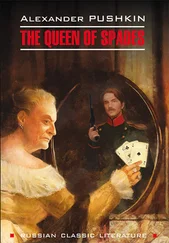My father had been right about him. Lillie Coit had been right about him. He would die a lonely and a hated man.
That night I sat down to write a letter to Amelia, addressed to her at 913 Taylor Street, expressing my hope that she would find great happiness in her marriage.

In the Alhambra Saloon the backs of the Democracy solidly lined the bar, and Chris Buckley sat in his corner, surrounded by his crowd. With him were fat Sam Rainey and skinny Mattie Mogle. I had been summoned, and I made my way through my fellow Democrats to present myself to the Boss.
“It is Tom Redmond of the True Blues,” he was informed. His unblinking eyeballs fixed on me. He sat in a big chair leaning his two hands on the head of his cane. His pals, seated and standing, regarded me in a moment of silence. I had the feeling of a schoolboy brought before the headmaster.
“Your boss has quit The Hornet ,” Buckley said, smiling. “And what will you do, Tom?”
“I will look for another position.”
“Would you be interested in a job as a schoolmaster? There are positions available.”
“I’ll try to get work as a journalist.”
“What paper?” Sam Rainey said in his gravelly voice. Seated beside Buckley he looked like a wise old frog.
“I have a friend at the Chronicle .”
“Republican,” Buckley said, shaking his head, smiling.
“We can talk to George Hearst,” Mogle said. “The Examiner ’s Democrat for sure.”
I shrugged.
“Your boss was not always a reasonable man,” Buckley said.
So I was to defend Bierce.
“He was not pleased by the scandals in the school directors, that was for certain,” I said. Where there were jobs Buckley could pass out.
“ ‘A crying roguery,’ I believe he put it,” Sam Rainey said.
“That was mild for Bierce,” I said. I was feeling a little more cheerful, all these Democrats looking at me with disfavor because I had worked with Bierce, who was as hard on Democrats as he was on Republicans.
“He especially didn’t like the Board of Supervisors granting a substantial portion of Beach Street to the Spring Valley Water Company,” I went on. “It reminded him of the Girtcrest Corridor giveaway.”
“ That is the Railroad, Tom,” Buckley said reprovingly.
“And this was the water works.”
“Bierce is a very negatively minded kind of fellow, Tom. You will admit that yourself, I’m sure. We are trying to ascertain if you are going to be that kind of journalist also, to the detriment of the Democracy.”
“Why, Mr. Buckley, I would think the Democrats ought to be reproved as well as the Republicans, when they go in for boodle, and dummies on the payrolls and giveaways. Don’t you?”
“Those things should be corrected in the Party councils, not in the newspapers.”
“Oh, my!” I said. “Is that what you called me here to tell me?”
There was another silence.
“For instance,” I said. “Captain Pusey has collected a deal of money from Lady Caroline Stearns for services rendered. For silence, that is. As for many years he collected the same kind of boodle from Senator Jennings. And everyone knows he has been collecting it from Mammy Pleasant’s employer, Thomas Bell, for decades.”
“Isaiah Pusey is a good Party man, Tom,” Buckley said. He was no longer smiling.
“I suppose his tendencies to blackmail that come from his position, and from his archive of photographs, will be corrected in the Party councils?”
Silence again.
“I think ‘a crying roguery’ like that has to be addressed in the newspapers,” I said.
“We understand you were given a beating by the Railroad ruffians,” Sam Rainey said.
“Is that a threat?”
“What we are dying to understand,” the Blind Boss interrupted, smiling, “is if it is your intention to carry on the same kind of warfare with the Railroad as Bierce has done.”
“Why?” I asked.
“There have been some accommodations made, Tom. We are not going after the Monopoly so hard, and the SP is giving us some funds for the fall campaign.”
“I see,” I said. I felt as though I was dropping down a mine shaft. “Well, don’t count on me, Mr. Buckley. I am Antimonopoly to the grave.”
The Blind Boss turned his face away with a pinched expression, as though I had created a bad smell. I gathered that I was excused. So I left the Alhambra Saloon gathering of the party chiefs of the San Francisco Democracy.
EPILOGUE
FUTURE, n. – That period of time in which our affairs prosper, our friends are true and our happiness is assured.
–THE DEVIL'S DICTIONARY
Senator Jennings was found guilty of the murder of Mrs. Hamon but appealed. He was dying from stomach cancer, however, and during the second trial was brought to the courtroom in a wheelchair. He did not receive much sympathy. He was represented by Bosworth Curtis.
The Morton Street Slasher murders joined the list of San Francisco’s unsolved murders. The theory that the Slasher fled to London, where he resurfaced as Jack the Ripper, gained considerable credence.
Lady Caroline Stearns and her son also returned to London. Her daughter was married to the son of the duke of Beltravers at Beltravers late in August. The wedding was an immense affair, with its shocking costs published in the London Times .
Amelia Brittain and Marshall Sloat were married in September, in Trinity Episcopalian. I rented fancy duds to attend. It may not have been as grand an affair as the Beltravers wedding, but it was too grand for me. The fanciest turnouts with the fanciest horseflesh clogged Post and Powell, and uniformed servants and footmen hung around them during the ceremony. I’d never been in an Episcopalian church before. It was pallid Roman Catholic. Amelia and her banker were very small up toward the altar. He was bald-headed, with ginger tufts of hair peaking over his ears like a wildcat. Ramparts of flowers surrounded them. Ranked in pews were the instant aristocrats of the Elite Directory of San Francisco . I didn’t enter in the hymns or the prayers. I felt heavy and loutish, as I had when I’d knocked down Beau McNair and received a bloody nose in return. There were fat gents in full regalia and various arrays of chin whiskers looking mighty comfortable with themselves, there were old women with embonpoints like kitchen ranges, there were young men and women admiring each other. I didn’t attend the reception.

When I quit The Hornet I got a job at the Chronicle , for a slight increase in wages over what Mr. Macgowan had paid me. The Chronicle was as anti-Chinese as The Hornet , but they did publish my piece on the slave girls, which I quote because it was to become important to my career as a journalist:
Chinese slave girls can be found in San Francisco in parlor-houses or cribs, the parlorhouses with all the Chinese trappings expected by tourists, musk, sandalwood, teak, silk wall hangings, comical ceramic gods, and scrolls. These houses are in Grant Avenue, Waverly Place and Ross Alley. There are only a few of them. There are cribs without number. They line Jackson and Washington Streets, and Bartlett, China and Church Alleys.
In 1869 the Chronicle reported a cargo of nine- and ten-year-old Chinese girls as though they were any commodity arrived from the Orient. “The particularly fine portions of the cargo, the fresh and pretty females who come from the interior, are used to fill special orders from wealthy merchants and prosperous tradesmen. Less fine portions of the cargo would be ‘boat-girls,’ from the seaboard towns, where contact with sailors would have reduced their value.”
Читать дальше










